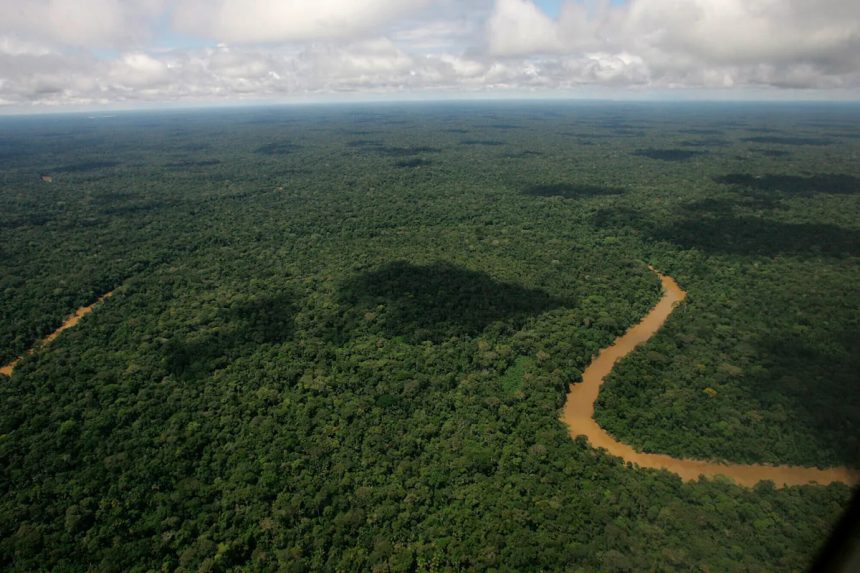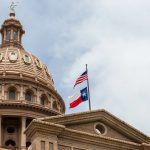BOGOTA, Colombia (AP) — When Ecuadorians voted two years ago to block oil drilling in Yasuni National Park, it was a triumph for environmentalists seeking to protect one of the most biodiverse places on Earth. And it was in character for a country that was first to enshrine the “rights of nature” in its constitution and is home to parts of the Amazon rain forest and the Galápagos Islands.
But recent moves by President Daniel Noboa have alarmed environmentalists and Indigenous leaders who say the country’s green reputation — and its protections for civil society — are unraveling.
Noboa’s administration has moved to scrap the country’s independent Environment Ministry. It’s pushing legislation ostensibly aimed at choking off illegal mining, but which critics fear will devastate nonprofits. The National Assembly — pressed by Noboa — approved a law last month allowing private and foreign entities to co‑manage conservation zones that critics say weakens protections and threatens Indigenous land rights. And Ecuador just signed a new oil deal with Peru that could accelerate drilling in sensitive areas.
Natalia Greene, an environmental advocate with the Global Alliance for the Rights of Nature, said Noboa’s decision to fold the Environment Ministry into the Ministry of Energy and Mines will speed up mining just as Ecuador is grappling with a surge in illegal gold mining tied to organized crime. She called it “like putting the wolf in charge of the sheep.”
“The government’s intention is very clear — to be a machine gun of extractivism,” she said.
Noboa has defended the ministry moves and other changes as necessary to cut costs, reduce bureaucracy and address Ecuador’s financial crisis. Officials argue that consolidating ministries will make decision‑making more efficient.
Neither the Ministry of Energy and Mines nor Noboa’s office responded to questions from The Associated Press.
Indigenous rights at risk
In July, Peru and Ecuador signed a deal for Ecuador’s state oil company to sell crude directly to Petroperu and link its southern Amazon reserves to Peru’s Norperuano pipeline, with drilling eyed for January 2026. Environmental groups say it could fast‑track drilling in sensitive areas while skirting safeguards and Indigenous consultation.
Peru’s Achuar, Wampis and Chapra nations denounced the plan in a public letter, saying it would gut long-standing protections that require communities be consulted before projects move forward on their lands. They warned the pipeline already averages 146 spills a year and that expanding it would be “a grave threat to the Amazon and to Indigenous livelihoods.”
“They are going to violate all our rights to enter our territories and extract the resources they want,” said Nemo Guiquita, a Waorani leader with the Confederation of Indigenous Nationalities of the Ecuadorian Amazon. She said Indigenous communities fear a surge of oil and mining projects across ancestral lands, threatening both ecosystems and livelihoods.
“There will be a weakening of environmental protection,” she said. “There will be a lot of deforestation, contamination of rivers and destruction of the ecosystem, which is vital for our existence as Indigenous peoples.”
Ricardo Buitrón, president of the Quito‑based environmental group Accion Ecologica, noted that the changes come just months after Ecuadorians voted to keep oil in the ground in Yasuni, a decision the government has yet to fully enforce.
“We have gone back decades,” he said. “A development model is being prioritized that does not care about protecting ecosystems, but about extracting natural resources to the maximum.”
Fears that proposed law will harm non-governmental organizations
The proposed law that has alarmed nonprofits is formally called the Organic Law for the Control of Irregular Capital Flows. But activists call it the “anti-NGO” law, saying it could impose heavy burdens on nonprofits and force many to close.
The measure applies to more than 71,000 organizations nationwide, giving them six months to re‑register with the government, submit detailed financial records and disclose foreign funding sources. The government says the law is needed to prevent money laundering and political destabilization. Critics warn it could instead silence dissent by placing organizations under sweeping controls.
Noboa submitted the bill to the National Assembly on July 29, giving lawmakers until Aug. 28 to act before it automatically becomes law.
“This has been hard for us,” Guiquita said. “Practically, Indigenous organizations live mostly from donations and NGOs. The government is weakening us in every space.”
“It represents a threat because they could dissolve us under any pretext,” Buitrón said. “This reminds us of what we already lived through a decade ago, when they tried to shut down some organizations in the country.”
Regional and global stakes
Kevin Koenig of Amazon Watch, a U.S.-based nonprofit that advocates for Indigenous rights and environmental protection in the Amazon, said the country’s changes are part of a wider rollback.
“We are seeing a sweeping package of regressive reforms that are rolling back environmental protections, Indigenous rights guarantees, and threatening basic civil liberties like the freedom of speech and assembly,” he said. “What it suggests is the massive expansion of oil and mining, particularly in the Amazon region.”
Koenig said the changes send troubling signals ahead of COP30, the United Nations climate summit set for Brazil later this year.
Similar trends are unfolding in Peru and El Salvador, where governments have limited environmental oversight, and in Brazil, where licensing for Amazon projects has been weakened.
Mobilizing resistance
Civil society groups are mobilizing against the changes. Greene said organizations have reactivated the Asamblea Nacional Socioambiental, a national coalition of environmental and social movements, and are planning legal challenges, demonstrations and appeals to international bodies.
Many fear Ecuador’s role as a global green pioneer is unraveling.
“Our only crime here has been protecting our territory, protecting our traditions, protecting our way of life,” Guiquita said.
___
The Associated Press’ climate and environmental coverage receives financial support from multiple private foundations. AP is solely responsible for all content. Find AP’s standards for working with philanthropies, a list of supporters and funded coverage areas at AP.org.









